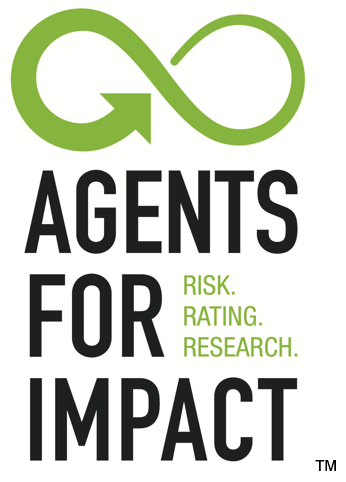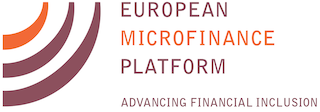 The authors of this report argue that microfinance loans in Cambodia are leading to over-indebtedness amongst farmers, inhibiting their ability to adapt to climate change. The aggregate
The authors of this report argue that microfinance loans in Cambodia are leading to over-indebtedness amongst farmers, inhibiting their ability to adapt to climate change. The aggregate
Category: Client Protection
SPECIAL REPORT: Looking Back to Plan Ahead – The Year of AFISAR
 AFISAR© (the Agents for Impact Sustainability Alignment Rating) builds trust and credibility in the microfinance sector. With our partners, we engage in an active rating process, inspiring discussion and increasing awareness and understanding of the UN’s SDGs and environmental, social and governance (ESG) factors, taking a deep dive into the potential of finance to transform people’s lives, especially the lives of members of vulnerable groups. Placing active dialogue at the centre of the AFISAR© rating process, we address sustainability with strategic decision-makers and support our partners to further align their operations to the SDGs.
AFISAR© (the Agents for Impact Sustainability Alignment Rating) builds trust and credibility in the microfinance sector. With our partners, we engage in an active rating process, inspiring discussion and increasing awareness and understanding of the UN’s SDGs and environmental, social and governance (ESG) factors, taking a deep dive into the potential of finance to transform people’s lives, especially the lives of members of vulnerable groups. Placing active dialogue at the centre of the AFISAR© rating process, we address sustainability with strategic decision-makers and support our partners to further align their operations to the SDGs.
Having clocked five years of rating experience, culminating with the Year of AFISAR© in 2022, we would like to share some reflections:
Local presence is key Our rating team has grown bigger and stronger: we have a new colleague, Abhinav Soni, who is based in
MICROCAPITAL BRIEF: Bidhaa Sasa Borrows $500k from Spark+ Africa Fund for Distribution of Efficient Cookstoves in Kenya, Uganda
 Bidhaa Sasa, a Kenya-based last-mile distributor of lower-emission cooking and lighting products, recently borrowed USD 500,000 from Spark+ Africa Fund, an investor in “modern energy solutions.” Bidhaa Sasa plans to use the proceeds to
Bidhaa Sasa, a Kenya-based last-mile distributor of lower-emission cooking and lighting products, recently borrowed USD 500,000 from Spark+ Africa Fund, an investor in “modern energy solutions.” Bidhaa Sasa plans to use the proceeds to
MICROCAPITAL BRIEF: Kwara of Kenya Raises $3m in Equity to Boost Technology for SACCOs, Acquires KUSCCO Software Subsidiary
 Kwara, a woman-led financial technology (fintech) company serving credit unions in Kenya, the Philippines and South Africa, recently raised USD 3 million from its previous investors DOB Equity, Globivest and Willard Ahdritz plus a group of
Kwara, a woman-led financial technology (fintech) company serving credit unions in Kenya, the Philippines and South Africa, recently raised USD 3 million from its previous investors DOB Equity, Globivest and Willard Ahdritz plus a group of
MICROCAPITAL BRIEF: Bank of Africa, Sanad Fund Deploying $27m for SME Finance in Morocco
 Bank of Africa, which is based in Morocco and serves 32 countries, recently agreed to borrow EUR 25 million (USD 27 million) from the Luxembourg-domiciled Sanad Fund for MSME to on-lend to small and medium-sized enterprises (SMEs) in Morocco. Sanad is supporting the loan with
Bank of Africa, which is based in Morocco and serves 32 countries, recently agreed to borrow EUR 25 million (USD 27 million) from the Luxembourg-domiciled Sanad Fund for MSME to on-lend to small and medium-sized enterprises (SMEs) in Morocco. Sanad is supporting the loan with
MICROCAPITAL BRIEF: World Bank’s IDA Lending $15m to Djibouti for Low-income Housing Finance, Policy Reform
 The International Development Association (IDA), a unit of the World Bank, recently agreed to lend USD 15 million to Djibouti for a project intended to: (1) scale up an existing partial guarantee fund to boost
The International Development Association (IDA), a unit of the World Bank, recently agreed to lend USD 15 million to Djibouti for a project intended to: (1) scale up an existing partial guarantee fund to boost
MICROFINANCE EVENT: FinovateSpring; May 23-25, 2023; San Francisco, California, USA
 This event focuses on financial technology (fintech), with 60 demos on the agenda as well as sessions such as: (1) Why Reimagining
This event focuses on financial technology (fintech), with 60 demos on the agenda as well as sessions such as: (1) Why Reimagining
MICROFINANCE EVENT: Arab Savings & Financial Literacy Conference; October 9-11, 2023; Cairo, Egypt – NEW DATES
 This event, which originally was set to begin on May 7, 2023, will focus on the importance of financial literacy and long-term savings in improving household financial stability. It offers in-person and remote access to sessions such as: (1) Reconciling the
This event, which originally was set to begin on May 7, 2023, will focus on the importance of financial literacy and long-term savings in improving household financial stability. It offers in-person and remote access to sessions such as: (1) Reconciling the
MICROCAPITAL BRIEF: B2B Fintech Clowd9 Chooses Netcetera for Payments Security
 Clowd9, a UK-based payment processing platform, recently hired the Switzerland-based software company Netcetera to augment its digital payment security. Clowd9 connects
Clowd9, a UK-based payment processing platform, recently hired the Switzerland-based software company Netcetera to augment its digital payment security. Clowd9 connects
MICROFINANCE EVENT: Livelihoods India Summit; January 19-20, 2023; New Delhi, India
 The 13th edition of this event will address how to increase the resilience of low-income people’s livelihoods. The sessions are to cover topics such as: (1) inclusive value chains; (2) the impact of climate change on livelihoods; (3) methods for
The 13th edition of this event will address how to increase the resilience of low-income people’s livelihoods. The sessions are to cover topics such as: (1) inclusive value chains; (2) the impact of climate change on livelihoods; (3) methods for
MICROFINANCE EVENT: Future of Fintech; June 14-15, 2023; Riyadh, Saudi Arabia; NEW DATES
 Originally scheduled to take place starting March 1, this event will focus on “disruptive ideas from across the fintech ecosystem.” The two-day event offers online and in-person sessions including: (1) Evaluating Saudi Arabia’s FinTech [Financial Technology] Venture Activity – Key Drivers and Factors; (2) Offering Financial Flexibility to
Originally scheduled to take place starting March 1, this event will focus on “disruptive ideas from across the fintech ecosystem.” The two-day event offers online and in-person sessions including: (1) Evaluating Saudi Arabia’s FinTech [Financial Technology] Venture Activity – Key Drivers and Factors; (2) Offering Financial Flexibility to
MICROCAPITAL BRIEF: CCAF-World Bank Study Finds Regulators in Africa Tops for Increasing Focus on Fintech, Cybersecurity Main Concern Worldwide
 A recent survey of 128 financial regulators and supervisors worldwide found that just over half of respondents in low- and middle-income countries have been increasing their focus on financial technology (fintech) firms. The figure is about one out of three in
A recent survey of 128 financial regulators and supervisors worldwide found that just over half of respondents in low- and middle-income countries have been increasing their focus on financial technology (fintech) firms. The figure is about one out of three in
MICROFINANCE EVENT: Microfinance Technology Summit; March 28-29, 2023; Kigali, Rwanda
 This event will promote networking among representatives of microfinance institutions (MFIs) and technology firms to leverage innovations that improve
This event will promote networking among representatives of microfinance institutions (MFIs) and technology firms to leverage innovations that improve
MICROFINANCE PAPER WRAP-UP: “The Financial Inclusion Compass 2022,” by Sam Mendelson, Published by e-MFP
 This report outlines global trends and areas of future focus in the field of financial inclusion, based on a survey of 112 professionals from 46 countries, representing financial service providers (FSPs), infrastructure organisations and consultancies as well as researchers and investors.
This report outlines global trends and areas of future focus in the field of financial inclusion, based on a survey of 112 professionals from 46 countries, representing financial service providers (FSPs), infrastructure organisations and consultancies as well as researchers and investors.
In the quantitative section of the survey, participants were asked to rank what they believe to be the most important
SPECIAL REPORT: Saluting MFI Staff, Promoting Flexible Products, “Keeping the Client at the Heart” as European Microfinance Week Closes
 A panel of microfinance luminaries shared their moments of pride and disappointment at the closing plenary of this year’s European Microfinance Week. Yannick Milev of the Cambodian microfinance institution Chamroeun expressed his admiration for the staff members of Chamroeun, who continued to work through the COVID-19 pandemic at significant risk to their and their families’ health because “stopping operations completely would have had a terrible effect on us and on our clients.” Mr Milev added that Chamroeun issued many loans during the early days of the pandemic to help clients diversify in response to the economic effects of COVID-19.
A panel of microfinance luminaries shared their moments of pride and disappointment at the closing plenary of this year’s European Microfinance Week. Yannick Milev of the Cambodian microfinance institution Chamroeun expressed his admiration for the staff members of Chamroeun, who continued to work through the COVID-19 pandemic at significant risk to their and their families’ health because “stopping operations completely would have had a terrible effect on us and on our clients.” Mr Milev added that Chamroeun issued many loans during the early days of the pandemic to help clients diversify in response to the economic effects of COVID-19.
Marc Labie of Belgium’s University of Mons described the pandemic as “a chance for the industry to
MICROFINANCE EVENT: RegTech Africa Conference; May 24-26, 2023; Lagos, Nigeria
 Themed “Elevating National Policy on Financial Inclusion, Consumer Protection and Cybersecurity,” this event will facilitate
Themed “Elevating National Policy on Financial Inclusion, Consumer Protection and Cybersecurity,” this event will facilitate
SPECIAL REPORT: Sounding Alarm Bells on Financial Health: Inclusion Is Not Sufficient
 On Friday in Luxembourg, a panel of experts sounded alarm bells on trends in financial health. Amrik Heyer of FSD Kenya noted that financial health in Kenya, for example, has gone down significantly since 2016, the first year for which her data are available. This has occurred while usage of digital financial services (DFS) has gone up.
On Friday in Luxembourg, a panel of experts sounded alarm bells on trends in financial health. Amrik Heyer of FSD Kenya noted that financial health in Kenya, for example, has gone down significantly since 2016, the first year for which her data are available. This has occurred while usage of digital financial services (DFS) has gone up.
The panel was adamant that financial inclusion alone does not boost financial health, which encompasses the ability to meet current needs, absorb shocks and pursue financial goals. In fact, Jaspreet Singh of the UN Capital Development Fund argued that
SPECIAL REPORT: How to Achieve Responsible Digital Financial Services: European Microfinance Week Opens
 At the opening plenary of European Microfinance Week, where over 500 attendees are gathering now in-person and online, Tidhar Wald of the UN’s Better Than Cash Alliance noted that over 1 billion more people worldwide have achieved financial inclusion over the past decade. While this has helped some to boost their livelihoods, many have accessed financial services via digital services, which carry different risks than in-person services. Data protection is an obvious example, as more client data is being digitized, and fraud is on the rise. Other risks, even though well-known to providers of in-person financial services, require different
At the opening plenary of European Microfinance Week, where over 500 attendees are gathering now in-person and online, Tidhar Wald of the UN’s Better Than Cash Alliance noted that over 1 billion more people worldwide have achieved financial inclusion over the past decade. While this has helped some to boost their livelihoods, many have accessed financial services via digital services, which carry different risks than in-person services. Data protection is an obvious example, as more client data is being digitized, and fraud is on the rise. Other risks, even though well-known to providers of in-person financial services, require different
